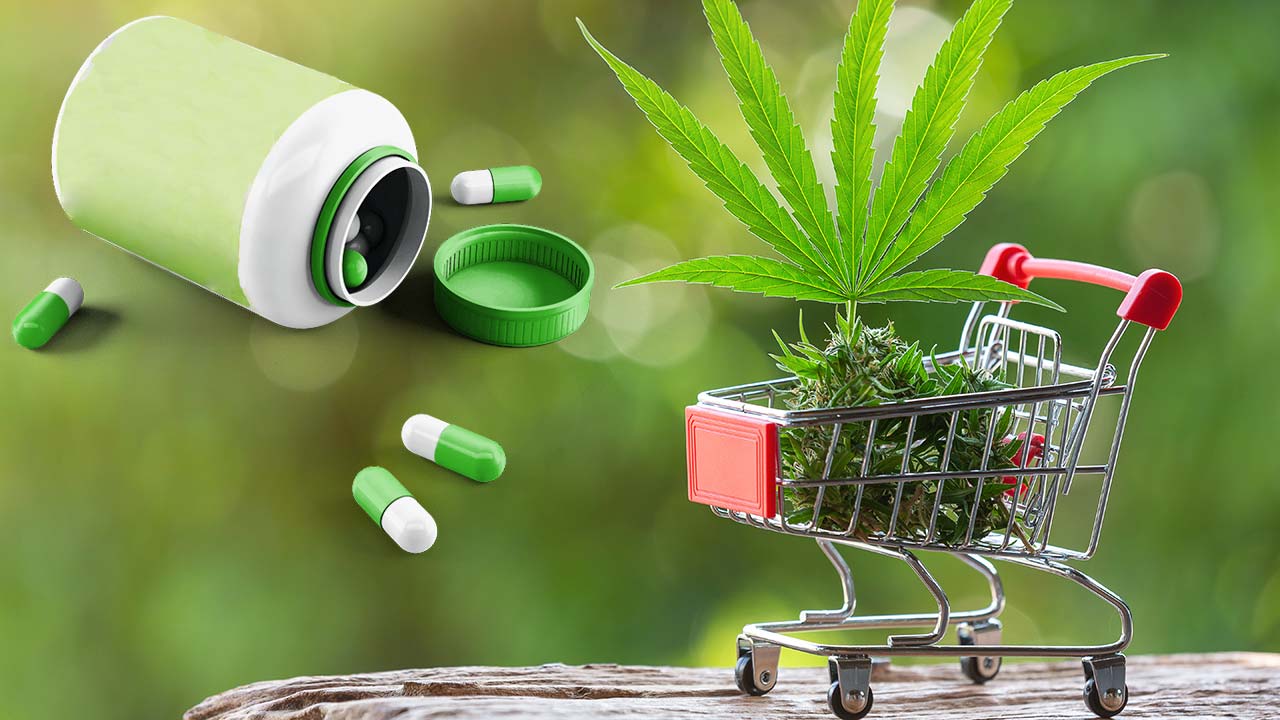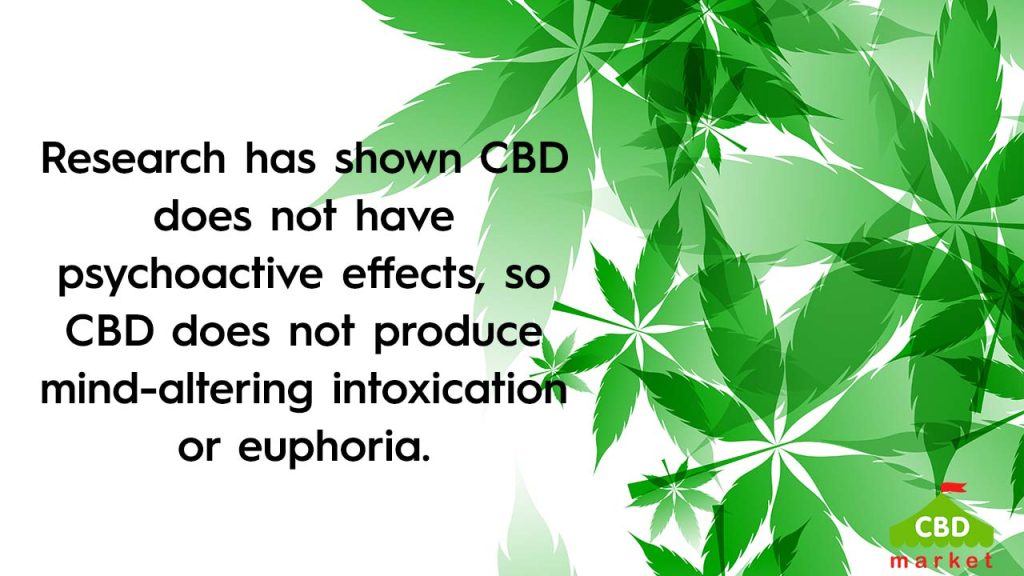Does CBD Get You High?
Summarize

CBD product lines continue to expand, and savvy consumers know it is important to understand the industry terminology found in product descriptions and on CBD package labels. Knowing these terms is especially helpful if you are concerned about passing sensitive drug testing at work or are concerned as to whether CBD oil can get you high.
CBD Terminology
• Cannabinoids – These are compounds that occur naturally in the Cannabis sativa plant. They include CBD, CBC, CBG, CBN, and many other minor cannabinoids.
• Hemp – By law, legal industrial hemp is a non-intoxicating cannabis plant variety grown explicitly with less than 0.3 percent THC, the psychoactive cannabinoid.
• Full spectrum – Full spectrum refers to the whole hemp plant extract that contains all the compounds in the plant, including terpenes, flavonoids, and various cannabinoids. Full-spectrum CBD may contain some THC within the legal limit of 0.3 percent or less.
• Broad spectrum – Also a whole hemp plant extract, but the THC is removed as much as possible during processing. A trace amount may make it through, but some companies have refined their process to the point where they can call a product THC-free.
• CBD isolate – This is pure CBD. All other compounds are removed during CBD processing.
Can CBD Oil Get You High?
Does CBD get you high? The answer is “no.” CBD does not get you high and does not contain THC.
Research has shown that CBD does not have psychoactive effects, so CBD does not produce mind-altering intoxication or euphoria.
If you eat something like an edible that has THC and CBD, you can experience some degree of high. For example, CBD gummies can get you high only when THC is one of the ingredients.
What Is THC, and How Is It Different from CBD?
THC (Delta-9-tetrahydrocannabinol) comes from the Cannabis Sativa plant, called marijuana. THC is a psychoactive cannabinoid that produces a high, meaning it alters brain activity primarily by activating CB1 receptors in the brain.
How much THC gets you high depends on several factors, including the THC content of the product and how it is consumed. Over the years, the THC content in cannabis has increased. Some products contain as much as a 95 percent THC concentration.
Legal CBD is extracted from the cannabis plant called hemp. CBD is only legal when it comes from a hemp plant that has 0.3 percent or less of the cannabinoid THC. CBD does affect some brain chemicals, but not in the way THC does. There is no high-CBD oil. CBD is called a CB1 antagonist, which means it blocks the intoxicating effects of the CB1 receptors.
What Does CBD Feel Like?
CBD may produce feelings of relaxation or even mild euphoria, but it does not produce a mind-altering high. Some users have reported that they take CBD to reduce feelings of discomfort or to help get a good night’s sleep.
What Other Cannabinoids Could Make You Feel High?
An analog of Delta-9-THC called Delta-8-THC will make you feel high. However, though Delta-8-THC is a psychoactive substance, it is said to be less potent than Delta-9. It does not produce as high as THC and is said to produce mild euphoria.
Drug Tests
Drug tests do not test for CBD because it is legal at the federal level and does not get you high. Once again, there is no high-CBD oil. However, the caveat is that full spectrum CBD products may contain up to 0.3 percent THC. A sensitive drug test could conceivably detect THC when you take a 0.3 THC CBD oil.
If you are worried about passing a drug test, the best thing to do is buy broad spectrum CBD, preferably a product that says THC-free or CBD isolate. It is important to buy CBD from a company with an excellent reputation for honest labeling. It is also important to read the Certificate of Analysis (COA) closely to ascertain that the product has only a trace of THC or no THC.

Frequently Asked Questions on Using CBD Oils
What can you expect to feel when using CBD?
Since there is no CBD high, the effects are related to other areas of well-being. For example, people using CBD gummies have reported that CBD has helped them feel more relaxed. These are not scientific reports but simply what CBD users have reported. It can take 15-45 minutes for CBD to take effect. A lot depends on your weight, metabolism, and the amount of CBD consumed.
What are the effects of CBD?
There are numerous research projects and clinical studies concerning CBD. One study found that CBD has a calming effect on the central nervous system and improves sleep. A real-world study of the effects of CBD on patients in a medical cannabis clinic found that CBD has several positive impacts. They include promoting a feeling of general well-being.
Can you overdose on CBD oil?
The World Health Organization (WHO) has studied CBD in-depth, including medical literature. WHO found that CBD has low toxicity, and the abuse potential is insignificant. One reason is that a study showed that even a high dose of 600 mg of CBD did not produce psychotic or intoxicating symptoms.
Since CBD does not produce a high, it makes it much less likely that someone would even try taking too much CBD. Another study found that oral CBD did not lead to abuse even in frequent marijuana users.
Sources
- https://odp.idaho.gov/cannibidiol/
- https://www.ncbi.nlm.nih.gov/pmc/articles/PMC6312155/
- https://www.fda.gov/consumers/consumer-updates/what-you-need-know-and-what-were-working-find-out-about-products-containing-cannabis-or-cannabis
- https://medlineplus.gov/druginfo/natural/1439.html#Action
- https://www.ncbi.nlm.nih.gov/pmc/articles/PMC6326553/
- https://www.ncbi.nlm.nih.gov/pmc/articles/PMC6043845/
- https://jcannabisresearch.biomedcentral.com/articles/10.1186/s42238-021-00078-w Once again, a lot more research is needed
- https://www.who.int/medicines/access/controlled-substances/5.2_CBD.pdf
- https://pubmed.ncbi.nlm.nih.gov/28088032/
Share this post


0